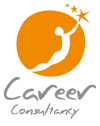Are you unknowingly sabotaging yourself in the eyes of your prospective buyer? Are you skilled at seeing the world from the Buyer’s Seat in a Tight Job Market?
It’s all too common for job applicants to make significant errors at key touch points with their target. The following unwise response to an interview question is merely one example. Needless to say, it would likely rule you out of a job…
You’re in the interview and you are asked, “Why are you leaving your current job?” You reply honestly saying, “My boss and I don’t see eye to eye about the strategic direction of the business. And this is the second boss in the company where this has happened, so it’s time for me to leave.”
Non, non and non, as my French friends would say.
Perfection anyone?
Of course, what your future boss wants is the perfect person. At each interaction, they are madly judging you:
CAN you do the job – do you have the technical skills needed to master the role?
WILL you do the job – are you self-motivated?
FIT – will you fit in with how we do things around here?
Here are my Ten Tips to focus on viewing every element of your job search activities from the perspective of the buyer.
Craft a persuasive, lively application letter
1. Send a letter that shows a serious effort and make your letter an attractive, well laid out and correctly written document that they will want to read.
It insults the buyer if you send a stock standard letter and it doesn’t energise them to want to meet you. I call it a “thin” letter and it makes you look uninterested.
In regards to the “look”, there are many small issues to cover here e.g. font, white space, modern language forms etc. And, of course, find someone who is good at English and ask them to check your language.
2. Establish a very clear link between your background/skills and the role on offer.
Your task is to make them think that you are the perfect candidate. If you are stretching a bit in applying for the role, sell the story of why your transferable skills and/or experience are valid.
3. Use (very) subtle flattery to paint the picture of why you want to work for them.
Write from the heart first. Put your thoughts down in conversational language as to what attracts you to the role. You may then choose to tighten up the language and write more formally, but at least some vestiges of sincerity will still remain. Otherwise, your letter can sound like “corporate speak” – very correct, but bland and unconvincing.
Create the perfect “What’s in it for Me” Résumé
4. Make your buyer want to read your résumé. Set out your sales pitch using an attractive, professional layout where the content is grouped logically (see Your Recipe for a ‘Wow’ Résumé).
5. Shift the focus from features selling to benefits selling, crafting persuasive content, especially on Page 1.
An excellent résumé focuses more on benefits, the “value add” that you delivered to the previous employer, with the strong message being that you will do the same for them.
Phone the Employer to continue the Sales Process
6. Phone your prospective employer to establish a link.
This is particularly important at the senior level – otherwise they may well think that you can’t be that keen if you haven’t even bothered to contact them. Do not ask about salary. Think up a couple of questions to ask about the role that make you seem the perfect candidate – someone with the right technical skills who is also savvy and strategic.
Appeal to their Interests when networking
7. Find out what critical issue they want to solve, that they are grappling with.
Then, tailor your sales pitch to sell the benefits you would bring to them.
Harness Social Media to manage your brand
8. Review your LinkedIn profile and vet Facebook & Instagram content.
Most prospective buyers will check you out on the key Social Media sites. Just Google for advice on how to make the most of these sites.
Worry them for the right reasons in interviews …”Will she come and work for us?”
9. Assess what it is they are likely to be worried about in relation to you.
Most of us carry something into the interview that has the potential to worry an employer– perhaps they are worried about you coming from a large business when they are a small Not For Profit. They may never voice these concerns in the interview but that doesn’t mean they are not thinking it. It’s your job to cover off on the issue and make it go away.
10. Pick up clues about their communication preferences.
Most of us prefer to listen to someone with our own communication style. Develop your skill so that you can easily change both your delivery style and the content to please your buyer’s communication preferences.
Your product development started at birth. At the moment that you are in the process of looking for a job, there’s not much that you can change. What you can change is how clever you are at Job Search. If you master this, you will be the one who gets the job, rather than your competitors.
Like what you’ve read? Subscribe to our newsletter by clicking here. You’ll be the first to hear about our updates once a fortnight!


